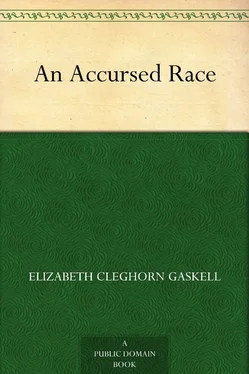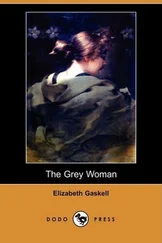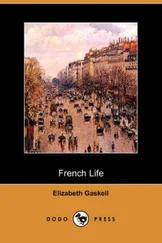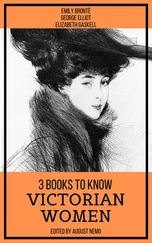Elizabeth Gaskell - An Accursed Race
Здесь есть возможность читать онлайн «Elizabeth Gaskell - An Accursed Race» весь текст электронной книги совершенно бесплатно (целиком полную версию без сокращений). В некоторых случаях можно слушать аудио, скачать через торрент в формате fb2 и присутствует краткое содержание. Год выпуска: 2007, ISBN: 2007, Издательство: Dodo Press, Жанр: Классическая проза, на английском языке. Описание произведения, (предисловие) а так же отзывы посетителей доступны на портале библиотеки ЛибКат.
- Название:An Accursed Race
- Автор:
- Издательство:Dodo Press
- Жанр:
- Год:2007
- ISBN:9781406527933
- Рейтинг книги:3 / 5. Голосов: 1
-
Избранное:Добавить в избранное
- Отзывы:
-
Ваша оценка:
- 60
- 1
- 2
- 3
- 4
- 5
An Accursed Race: краткое содержание, описание и аннотация
Предлагаем к чтению аннотацию, описание, краткое содержание или предисловие (зависит от того, что написал сам автор книги «An Accursed Race»). Если вы не нашли необходимую информацию о книге — напишите в комментариях, мы постараемся отыскать её.
An Accursed Race — читать онлайн бесплатно полную книгу (весь текст) целиком
Ниже представлен текст книги, разбитый по страницам. Система сохранения места последней прочитанной страницы, позволяет с удобством читать онлайн бесплатно книгу «An Accursed Race», без необходимости каждый раз заново искать на чём Вы остановились. Поставьте закладку, и сможете в любой момент перейти на страницу, на которой закончили чтение.
Интервал:
Закладка:
They could not emigrate. Even to remove their poor mud habitations, from one spot to another, excited anger and suspicion. To be sure, in sixteen hundred and ninety-five, the Spanish government ordered the alcaldes to search out all the Cagots, and to expel them before two months had expired, under pain of having fifty ducats to pay for every Cagot remaining in Spain at the expiration of that time. The inhabitants of the villages rose up and flogged out any of the miserable race who might be in their neighbourhood; but the French were on their guard against this enforced irruption, and refused to permit them to enter France. Numbers were hunted up into the inhospitable Pyrenees, and there died of starvation, or became a prey to wild beasts. They were obliged to wear both gloves and shoes when they were thus put to flight, otherwise the stones and herbage they trod upon and the balustrades of the bridges that they handled in crossing, would, according to popular belief, have become poisonous.
And all this time, there was nothing remarkable or disgusting in the outward appearance of this unfortunate people. There was nothing about them to countenance the idea of their being lepers-the most natural mode of accounting for the abhorrence in which they were held. They were repeatedly examined by learned doctors, whose experiments, although singular and rude, appear to have been made in a spirit of humanity. For instance, the surgeons of the king of Navarre, in sixteen hundred, bled twenty-two Cagots, in order to examine and analyze their blood. They were young and healthy people of both sexes; and the doctors seem to have expected that they should have been able to extract some new kind of salt from their blood which might account for the wonderful heat of their bodies. But their blood was just like that of other people. Some of these medical men have left us a description of the general appearance of this unfortunate race, at a time when they were more numerous and less intermixed than they are now. The families existing in the south and west of France, who are reputed to be of Cagot descent at this day, are, like their ancestors, tall, largely made, and powerful in frame; fair and ruddy in complexion, with gray-blue eyes, in which some observers see a pensive heaviness of look. Their lips are thick, but well-formed. Some of the reports name their sad expression of countenance with surprise and suspicion-"They are not gay, like other folk." The wonder would be if they were. Dr. Guyon, the medical man of the last century who has left the clearest report on the health of the Cagots, speaks of the vigorous old age they attain to. In one family alone, he found a man of seventy-four years of age; a woman as old, gathering cherries; and another woman, aged eighty-three, was lying on the grass, having her hair combed by her great-grandchildren. Dr. Guyon and other surgeons examined into the subject of the horribly infectious smell which the Cagots were said to leave behind them, and upon everything they touched; but they could perceive nothing unusual on this head. They also examined their ears, which according to common belief (a belief existing to this day), were differently shaped from those of other people; being round and gristly, without the lobe of flesh into which the ear-ring is inserted. They decided that most of the Cagots whom they examined had the ears of this round shape; but they gravely added, that they saw no reason why this should exclude them from the good-will of men, and from the power of holding office in Church and State. They recorded the fact, that the children of the towns ran baaing after any Cagot who had been compelled to come into the streets to make purchases, in allusion to this peculiarity of the shape of the ear, which bore some resemblance to the ears of the sheep as they are cut by the shepherds in this district. Dr. Guyon names the case of a beautiful Cagot girl, who sang most sweetly, and prayed to be allowed to sing canticles in the organ-loft. The organist, more musician than bigot, allowed her to come, but the indignant congregation, finding out whence proceeded that clear, fresh voice, rushed up to the organ-loft, and chased the girl out, bidding her "remember her ears," and not commit the sacrilege of singing praises to God along with the pure race.
But this medical report of Dr. Guyon's-bringing facts and arguments to confirm his opinion, that there was no physical reason why the Cagots should not be received on terms of social equality by the rest of the world-did no more for his clients than the legal decrees promulgated two centuries before had done. The French proved the truth of the saying in Hudibras -
He that's convinced against his will
Is of the same opinion still.
And, indeed, the being convinced by Dr. Guyon that they ought to receive Cagots as fellow-creatures, only made them more rabid in declaring that they would not. One or two little occurrences which are recorded, show that the bitterness of the repugnance to the Cagots was in full force at the time just preceding the first French revolution. There was a M. d'Abedos, the curate of Lourbes, and brother to the seigneur of the neighbouring castle, who was living in seventeen hundred and eighty; he was well-educated for the time, a travelled man, and sensible and moderate in all respects but that of his abhorrence of the Cagots: he would insult them from the very altar, calling out to them, as they stood afar off, "Oh! ye Cagots, damned for evermore!" One day, a half-blind Cagot stumbled and touched the censer borne before this Abbe de Lourbes. He was immediately turned out of the church, and forbidden ever to re-enter it. One does not know how to account for the fact, that the very brother of this bigoted abbe, the seigneur of the village, went and married a Cagot girl; but so it was, and the abbe brought a legal process against him, and had his estates taken from him, solely on account of his marriage, which reduced him to the condition of a Cagot, against whom the old law was still in force. The descendants of this Seigneur de Lourbes are simple peasants at this very day, working on the lands which belonged to their grandfather.
This prejudice against mixed marriages remained prevalent until very lately. The tradition of the Cagot descent lingered among the people, long after the laws against the accursed race were abolished. A Breton girl, within the last few years, having two lovers each of reputed Cagot descent, employed a notary to examine their pedigrees, and see which of the two had least Cagot in him; and to that one she gave her hand. In Brittany the prejudice seems to have been more virulent than anywhere else. M. Emile Souvestre records proofs of the hatred borne to them in Brittany so recently as in eighteen hundred and thirty-five. Just lately a baker at Hennebon, having married a girl of Cagot descent, lost all his custom. The godfather and godmother of a Cagot child became Cagots themselves by the Breton laws, unless, indeed, the poor little baby died before attaining a certain number of days. They had to eat the butchers' meat condemned as unhealthy; but, for some unknown reason, they were considered to have a right to every cut leaf turned upside down, with its cut side towards the door, and might enter any house in which they saw a loaf in this position, and carry it away with them. About thirty years ago, there was the skeleton of a hand hanging up as an offering in a Breton church near Quimperle, and the tradition was, that it was the hand of a rich Cagot who had dared to take holy water out of the usual benitier, some time at the beginning of the reign of Louis the Sixteenth; which an old soldier witnessing, he lay in wait, and the next time the offender approached the benitier he cut off his hand, and hung it up, dripping with blood, as an offering to the patron saint of the church. The poor Cagots in Brittany petitioned against their opprobrious name, and begged to be distinguished by the appelation of Malandrins. To English ears one is much the same as the other, as neither conveys any meaning; but, to this day, the descendants of the Cagots do not like to have this name applied to them, preferring that of Malandrin.
Читать дальшеИнтервал:
Закладка:
Похожие книги на «An Accursed Race»
Представляем Вашему вниманию похожие книги на «An Accursed Race» списком для выбора. Мы отобрали схожую по названию и смыслу литературу в надежде предоставить читателям больше вариантов отыскать новые, интересные, ещё непрочитанные произведения.
Обсуждение, отзывы о книге «An Accursed Race» и просто собственные мнения читателей. Оставьте ваши комментарии, напишите, что Вы думаете о произведении, его смысле или главных героях. Укажите что конкретно понравилось, а что нет, и почему Вы так считаете.












